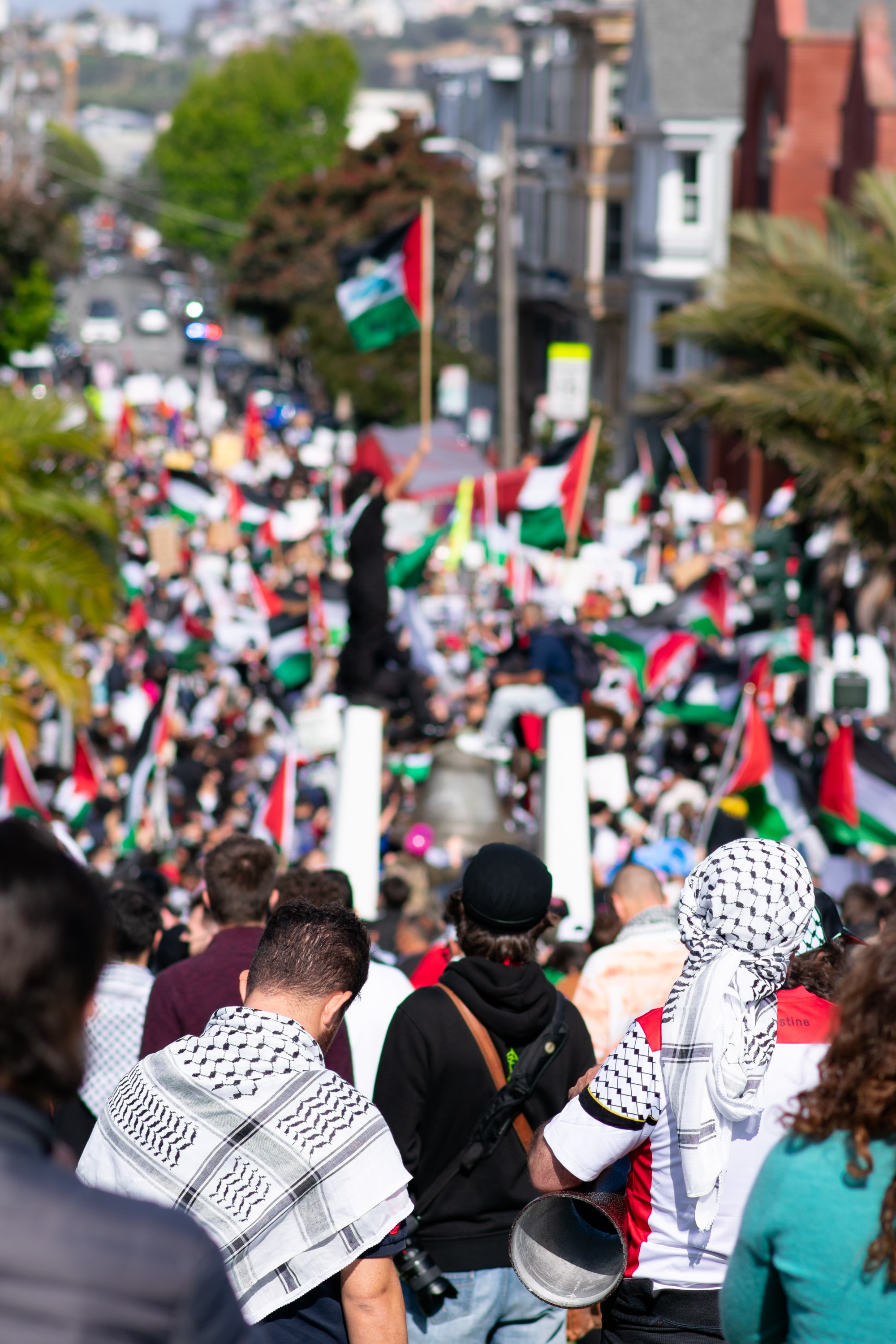Understanding Palestinian Youth
Brian Barber, a sociologist and professor at the University of Tennessee, spoke on a webinar moderated by Churches for Middle East Peace on February 17, 2022. The following is an excerpt of his comments.
Brian Barber, a sociologist and professor at the University of Tennessee, spoke on a webinar moderated by Churches for Middle East Peace on February 17, 2022. Below is an excerpt of his comments. The following article was published in the March-April 2022 issue of NewsNotes.
I study young people and how the context they inhabit impacts them either positively or negatively. I first went to Palestine in 1994 and specifically Gaza in 1996 where a team of sociologists and I conducted rigorous research on Palestinian families.
I didn’t understand well enough [then] the main finding that we made during those early studies. That is, the young people in Palestine then and now are faring much better than theories would have predicted. …
What I will say now from findings from our research and observation and my learning over all these 28 years, has to do with the notion of what we researchers call resilience. I like to call it endurance. It is the ability of Palestinians, and in particular, Gazans, given their unique hardships, to keep going, and not be destroyed psychologically, emotionally, given all they have gone through.
When I first sat down to speak personally with a group of Palestinian 17-year-olds in Jerusalem, it was a profound moment of personal growth for me. When I interview young people, and I have done so hundreds of times in 15 cultures or so, I always open with a question like “Tell me when you are happy” to elicit some personal insights from these four young Palestinians. …
They were giving me answers like “I’m happy when Omar’s health is good.” Another one said, “I’m happy when the peace process is going well.”
I was thinking to myself [they] don’t understand my question. So, I probed … Finally one of them said, “I think I know what you mean, I am happy when I run … but whenever I run, the soldiers want to arrest me.”
[Their answers] opened a whole new window to me about what it means to be well. What I learned from these young folks … was that one’s personal well-being is, in fact, in certain areas, impacted by political conditions.
…The well-being of Palestinians, Gazans in particular, really is a matter of the political context they are living in. Often their daily life is impacted by decisions made in Tel Aviv or Washington or Brussels, which border is going to be open, how many people are going to be let through, how much material is going to come in, and so forth.
… How is it that these young people are still sane? And much more than sane – active, happy, to the extent that one can be happy in those conditions.
I decided I would do a comparative study and I went to Sarajevo. It was a good comparison: population, territory politically unstable, historically the people had experienced years of exposure to violence during the siege of Sarajevo. …
There I learned the next piece of insight. Those young people I interviewed in Sarajevo were the most distressed, most dysfunctional group of young people I have ever met in all the cultures [I have studied].
In the Bosnian case, the youth were totally unaware of why the war happened, why suddenly the next day at school, half their classmate were gone. They turned out to be the Serbian families that fled. They didn’t know who the enemy was until they deciphered the symbols on the tanks that were shooting at them. Parents couldn’t explain this to the kids and the kids were pure victims. They had no way of becoming involved ideologically or physically.
The reverse is true in Palestine. The Intifada was … a moment when young people could actually, physically and ideologically, contribute.
The lesson there is the response to adversity that the conflict included depends a lot on how interpretable the moment is, how much sense you can make out of it… [Palestinians see the conflict as] right morally, religiously, politically.
Another insight … I have learned [is] that the most painful events to occur are attacks that target an individual’s worth as a person, or as a people. Ironically, that same attack creates a resistance response. Because all of us, I am coming to learn, will defend ourselves. …
So, another key to the success of Palestinians in surviving their horrible hardships is the fact that they are fighting for their basic dignity. That fight will never end because they will not give up on demanding basic human rights and the right to call themselves human beings and a people.
For insights on understanding Israeli youth, see “How secular Israeli millennials feel about Palestinians,” by Stacey Gutkowski, Co-Director of the Centre for the Study of Divided Societies, King’s College London, published online in The Conversation, Oct. 28, 2020: https://bit.ly/3K17WeO
Photo available on Unsplash.

